Enhancing math skills Normal Numbers Worksheets for Ages 3-8
5 filtered results
-
From - To
Enhance your child's math skills with our comprehensive Normal Numbers Worksheets designed for ages 3-8. These engaging, printable resources foster a solid foundation in number recognition, counting, and basic arithmetic. Tailored to boost confidence and understanding, our worksheets offer a variety of activities, including tracing, coloring, and problem-solving tasks that make learning fun and interactive. Perfect for homeschoolers and classroom use, these worksheets cater to different learning styles, ensuring every child can thrive mathematically. Equip your young learners with the essential tools they need to excel in math with our carefully crafted worksheets that promote a love for numbers from an early age!
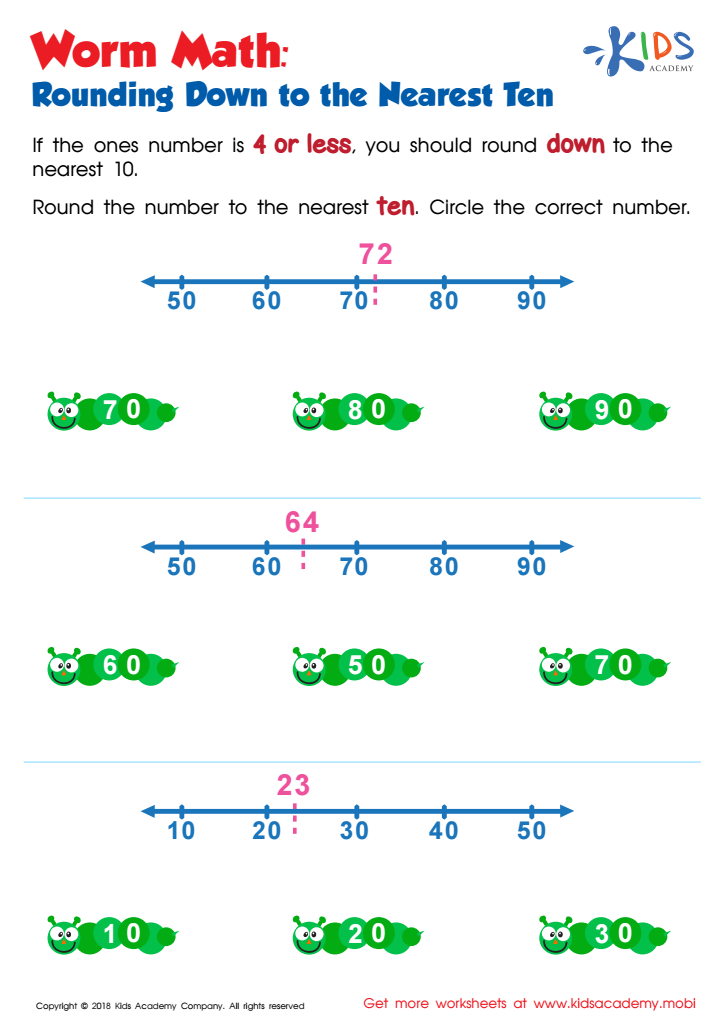

Worm Math Rounding Down to the Nearest Ten Worksheet
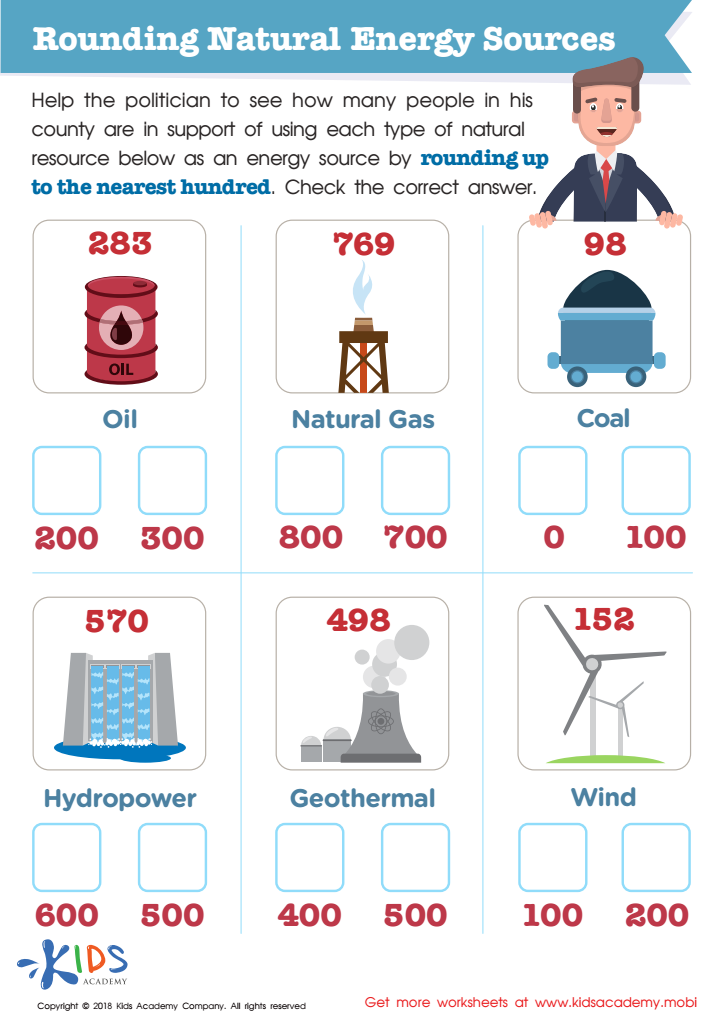

Rounding Natural Energy Sources Worksheet
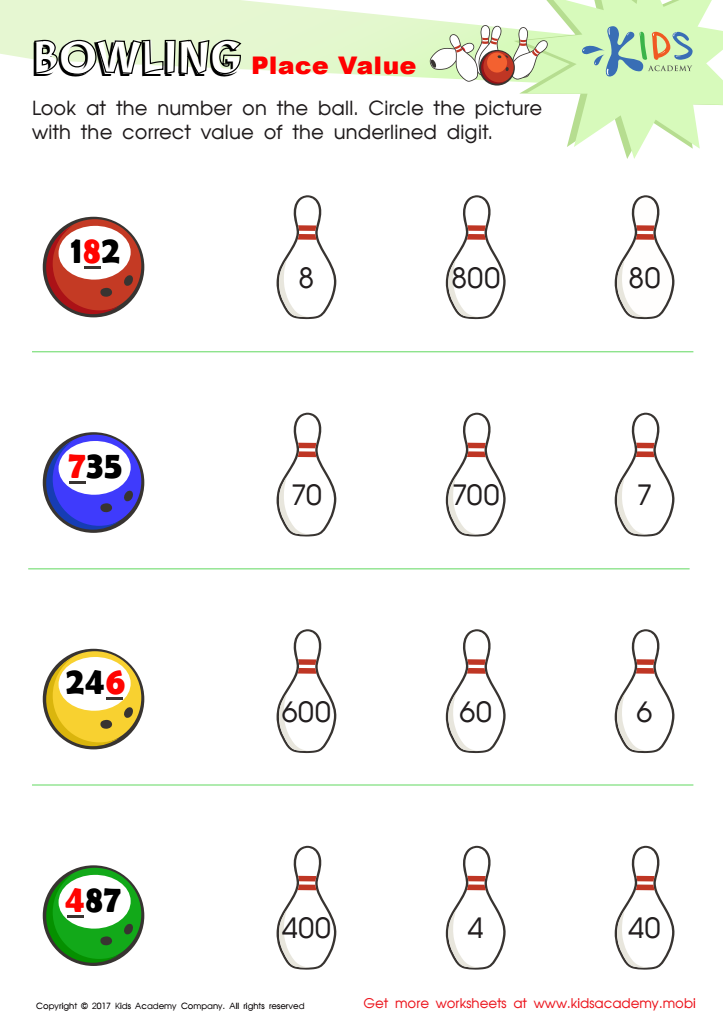

Place Value Worksheet
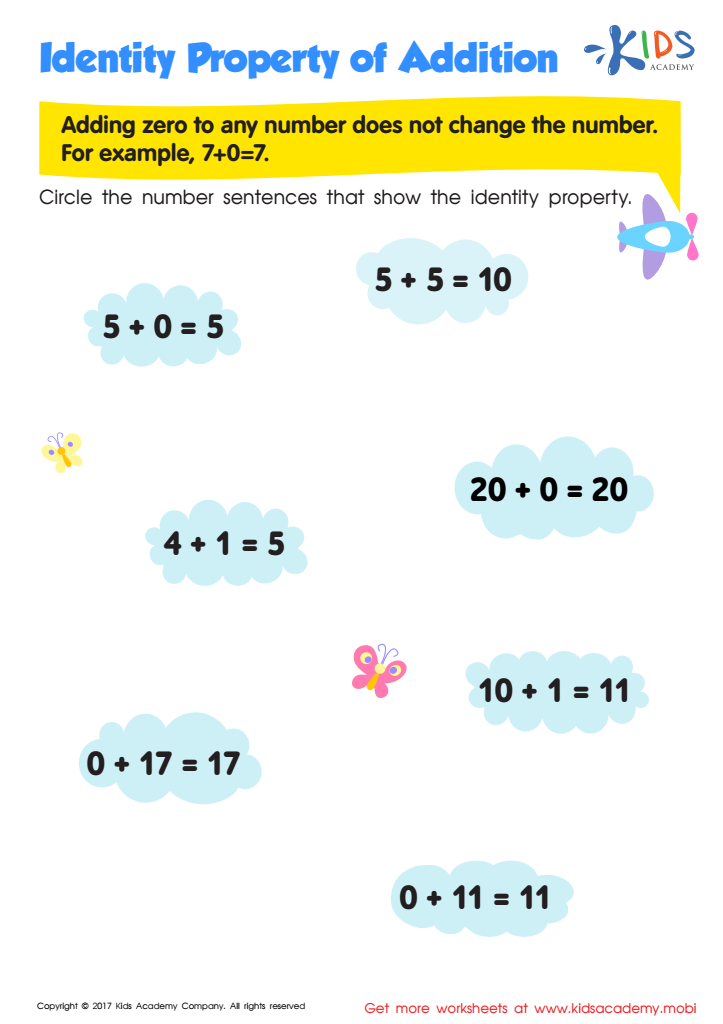

Identity Property of Addition Worksheet
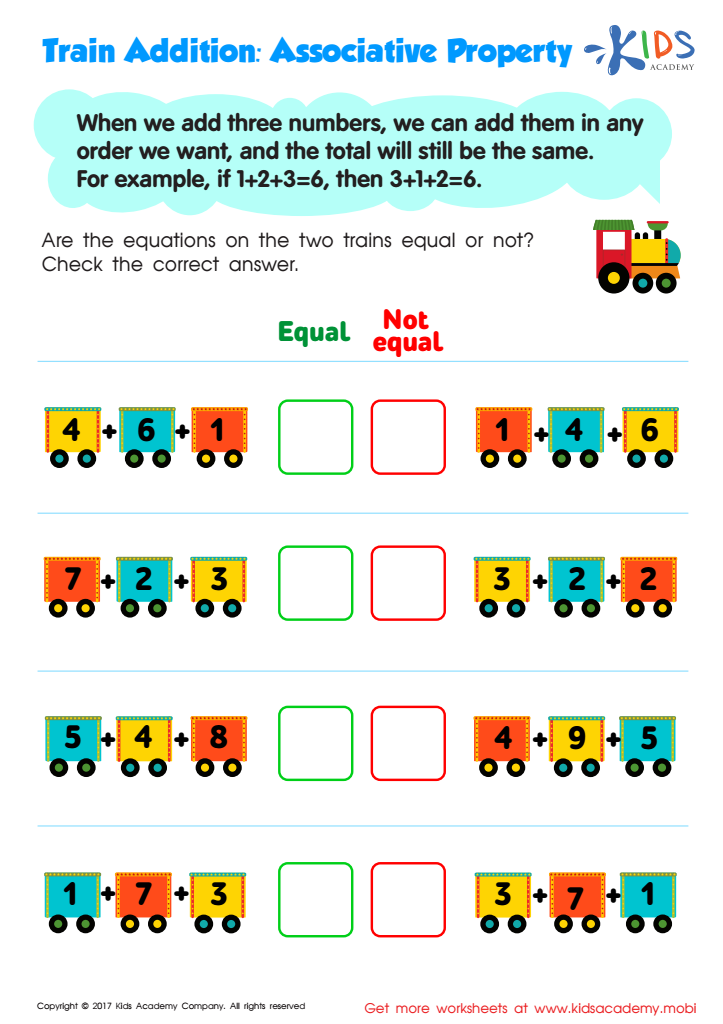

Train Addition: Associative Property Worksheet
Enhancing math skills in young children, particularly with normal numbers, is crucial for several reasons. First, early math competence is a strong predictor of later academic success. By focusing on normal numbers—those we commonly use in everyday life, such as counting numbers—the foundation for future mathematical concepts is solidified. Engaging with numbers through play and practical examples helps children develop critical thinking and problem-solving skills.
Moreover, strong numerical skills boost children’s confidence in their capabilities. When parents and teachers encourage the exploration of numbers through games, activities, and discussions, children become more comfortable with arithmetic. This positive reinforcement can lead to a lifelong interest in mathematics.
Learning about normal numbers also supports essential concepts in learning, such as classification, pattern recognition, and spatial awareness. These skills intersect with other areas of learning, fostering overall cognitive development.
Additionally, early math skills promote social interactions—children often engage in cooperative play that involves counting, sharing, and dividing, enhancing their communication and teamwork abilities. Overall, emphasizing the importance of normal numbers for ages 3-8 provides children with a crucial stepping stone in their educational journey, preparing them for success in a world increasingly driven by mathematical understanding.
 Assign to My Students
Assign to My Students




















